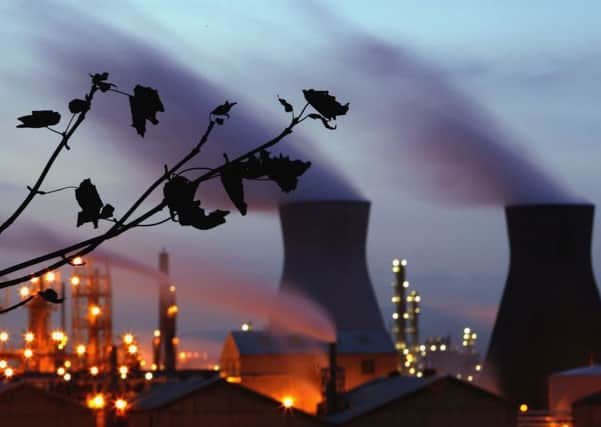Ilona Amos: Here's why this week's global climate talks are crucial


Their goal – to prevent dangerous human-induced interference to the world’s climate system, or global warming. So not a big ask then.
Climate change has been named the biggest threat ever to face mankind. If emissions of greenhouse gases continue at current levels we face “severe, widespread and irreversible impacts”, from ocean acidification and melting ice caps to increasingly extreme weather, food shortages and extinctions.
Advertisement
Hide AdAdvertisement
Hide AdThe 2017 summit may not be expecting the headline-grabbing outcome of the same meeting two years ago, which led to the historic Paris Agreement – the first-ever legally binding global treaty to tackle climate change – but it is none the less important.
The effects of warming on the planet cannot be ignored. They are already increasingly apparent, with devastating flooding and killer heatwaves causing catastrophe around the globe. A recent report from Oxfam revealed that 23.5 million people across the world were forced from their homes last year as a result of extreme weather. And the figure is only set to go in one direction.
Here in Scotland we’re seeing temperatures warming up year on year, seasons becoming wetter and sea levels rising. Coastlines and architectural heritage are under growing threat from the elements, while many native species are retreating to higher ground and cooler waters.
As the clock ticks and extreme weather becomes increasingly commonplace, the possibility of avoiding the most dangerous effects of climate change looks ever more challenging. The science community is working hard to find solutions that will slow or even reverse the process, but countries – particularly the biggest emitters – need to drastically cut the amount of greenhouse gases being released into the atmosphere. China, the US and the EU are responsible for more than half of total global emissions, while the 100 countries with the lowest emissions account for just 3.5 per cent.
The UK is one of 169 countries to have ratified the Paris Agreement, which sets out to restrict global warming to well under 2C above pre-industrial levels and to work towards restricting the rise to no more than 1.5C.
US President Donald Trump’s controversial decision to withdraw from the deal has been heavily criticised and caused widespread concern, with some fearing it could open the floodgates for others to follow his lead. Luckily this hasn’t happened so far and the signs suggest work towards the accord will continue with or without the US.
In Scotland our leaders take the threat from climate change seriously and have set some of the world’s toughest emissions reduction targets. But the need for international collaboration has never been stronger. The Bonn meeting represents the chance to work on the details of the plan. The destination has been typed into the global satnav. Now we need explicit directions how to get there.
Environment Secretary Roseanna Cunningham, who is representing Scotland at the summit along with Nicola Sturgeon, says support for the agreement is “unstoppable”, adding: “Scotland is proud to stand side by side with the states, regions, cities and progressively minded businesses who all recognise the importance of these collective efforts.”